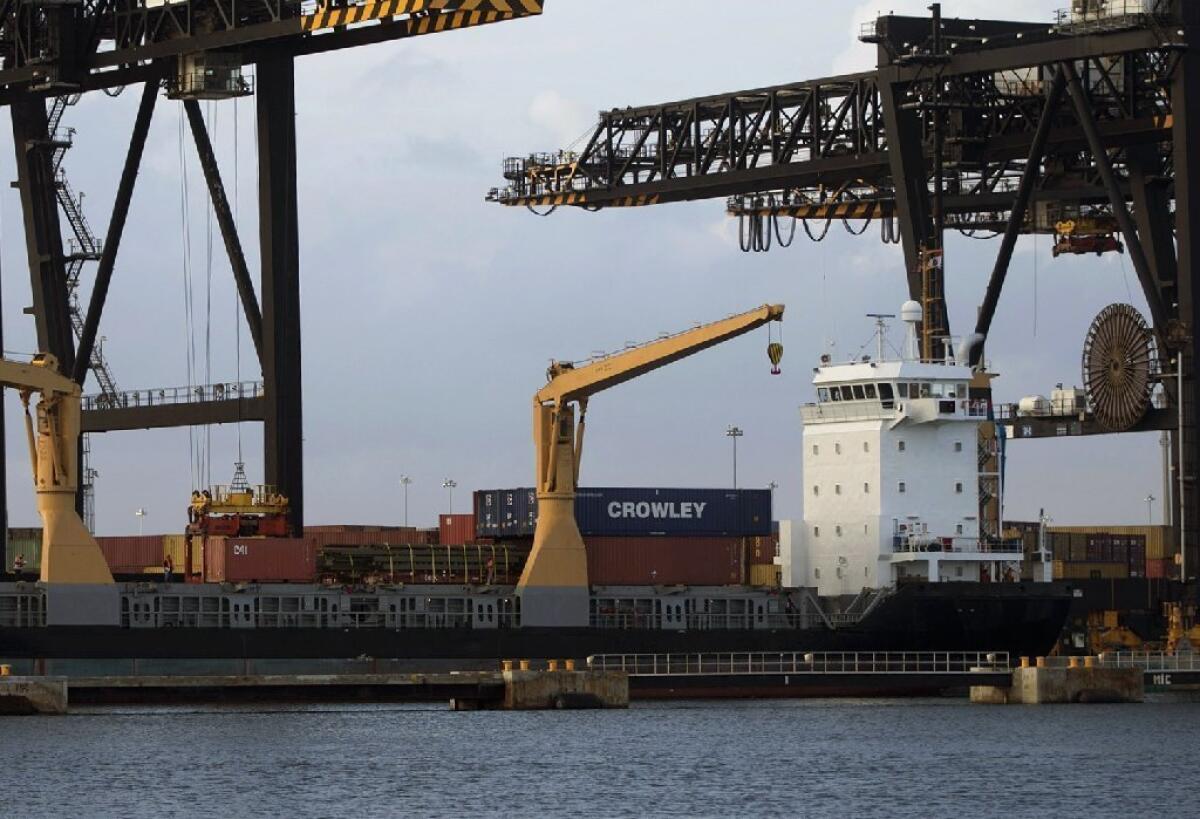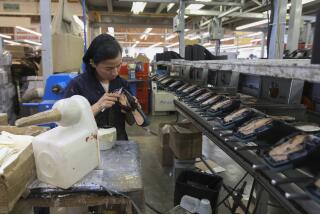U.S. exports flatten, but trade outlook more favorable

WASHINGTON -- August was a humdrum month for U.S. trade. The level of exports and imports hardly moved from July, leaving the monthly deficit essentially unchanged at $38.8 billion.
But the details of the new report, released Thursday by the Census Bureau, offer some encouraging signs that trade may soon provide a little more spark for the lackluster American economy.
For the first eight months of this year, the nation’s trade deficit totaled $317.9 billion. That’s 13% smaller than the $365.7-billion shortfall during the same period last year.
Most of that improvement was the result of shrinking imports of oil, thanks to lower crude prices and more energy production at home. American imports of petroleum products sank 13% through August of this year, to $247.8 billion, while exports of such goods rose 9%, to $86.2 billion.
Overall, exports of goods and services through August were up 3%, half of the pace of growth in the same period a year ago. But some of the slowdown has come from constrained supplies that should ease up in coming months.
Farm goods are among America’s top exports, but as a whole these shipments slipped in August and were down 4% for the year through that month, to $83.7 billion. The main reason: big drops in soybean and corn shipments as a result of last year’s drought.
“With strong domestic demand, exports took the brunt of the decline with stocks falling to historic lows,” said Ellen Dougherty, a spokeswoman for the U.S. Department of Agriculture. Farmers are reporting stronger yields this year, she said, putting them in a better position to meet growing foreign demand in the coming year.
Another factor that could help American exports more broadly is the improved outlook for some major trading partners. China’s economy and manufacturing in particular now seem to be strengthening after slowing earlier in the year, and Europe’s nascent recovery from its debt woes should help American exporters of capital goods and other products.
“The global backdrop is starting to look quite good,” said Bernard Baumohl, chief global economist for the Economic Outlook Group. If central banks such as the Federal Reserve keep interest rates low for a longer period, as they are now expected to do, “global growth in 2014 could well surprise on the upside,” he wrote in a note to clients Thursday.
Europe accounts for more than one-fifth of American exports. Through August, U.S. shipments to the euro area were off 1% from a year ago, to $129.5 billion.
U.S. deficits with Europe, Canada and China all have widened this year, despite the overall improvement in the balance of trade with the world.
America’s biggest trade deficit was with China -- $207.7 billion in the first eight months of this year, up 3% from the same period in 2012.
The U.S. shortfall with Japan, however, has narrowed this year, despite concerns that the cheaper Japanese currency would give that nation a big competitive advantage. American car makers, in particular, have complained about the weak yen as the Obama administration is negotiating a free-trade agreement with Japan and 10 other Asia-Pacific countries.
So far, though, the cheaper yen hasn’t translated into any noticeably outsized gain for Japanese exports to the U.S. The latest data show that U.S. imports of Japanese cars, trucks and auto parts were in fact down 8% through August, to $36.2 billion, even though overall imports of such products from all countries were up 2%.
The U.S. shipped a record $13.6 billion worth of cars and parts to the rest of the world in August, including a big percentage gain in Japan. Even so, U.S. exports of motor vehicles and car parts to Japan through August totaled just $1.3 billion, a 21% decline from a year ago, according to the Census Bureau report.
ALSO:
Unemployment drops to 5-year low, but job growth disappoints
Economic hit from impasse could endure
Currency manipulation at issue in Pacific free-trade talks







